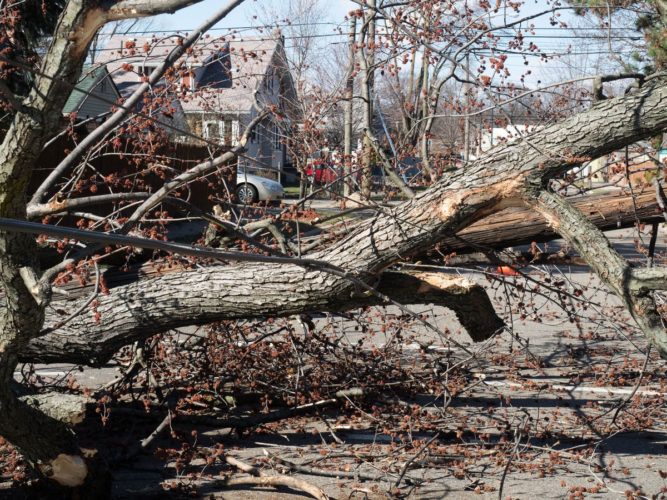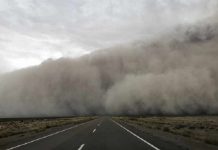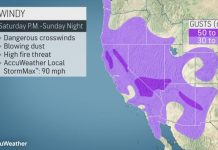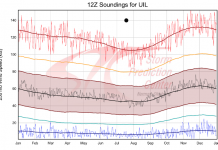More than 1 million utility customers in Michigan have lost power after a powerful windstorm swept through the state on Wednesday, March 8, 2017.
DTE Energy calls it the largest weather event in their history. Governor Rick Snyder has activated the State Emergency Operations Center.
Update on largest weather related outage event in our company history https://t.co/i5OhJeH1un
— DTE Energy (@DTE_Energy) March 9, 2017
Some 11 000 power lines in Southeast Michigan were knocked down Wednesday during wind storms with gusts in excess of 100 km/h (60 mph), resulting in power cuts to more than 800 000 DTE Energy and 300 000 Consumers Energy customers.
Detroit-based DTE Energy is calling it the worst weather event in its history and estimates it will be days before power is fully restored throughout the state.

“This is the largest weather event in DTE history. The outages are widespread across the region, with the hardest hit areas in Wayne, Oakland, Macomb and Washtenaw counties… Due to the unusually warm weather this winter, as well as significant rainfall, the ground is very soft and saturated. That, combined with the high winds, caused trees to uproot, falling onto DTE’s poles and power lines, resulting in widespread outages.”
Customers should stay at least 6 m (20 feet) away from all power lines and anything they may contact, and consider the powerlines ALIVE!: They are extremely dangerous. Treat every downed power line as if it is energized and do not cross yellow caution tape.

As of 10:00 EST (15:00 UTC) on Thursday, more than 665 000 DTE customers remained without power.
Jackson-based Consumers Energy said more than 300 000 of their customers were affected too. Power was restored to some 120 000 as of 08:00 EST, Thursday.

The conditions prompted Governor Rick Snyder to activate the State Emergency Operations Center. The center allows state, local and federal agencies to coordinate a response to a disaster, emergency or terrorist event.
The hurricane-like winds were caused by a strong low pressure system north of the Great Lakes, which brought a cold front to Lower Michigan.











